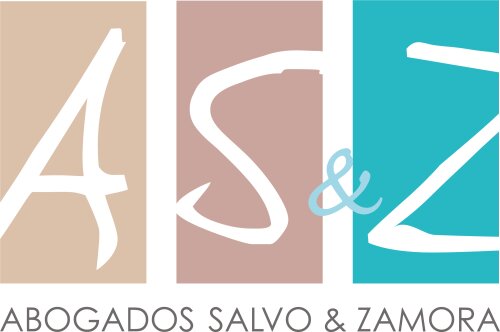Best Drug Crime Lawyers in Valparaíso
Share your needs with us, get contacted by law firms.
Free. Takes 2 min.
List of the best lawyers in Valparaíso, Chile
About Drug Crime Law in Valparaíso, Chile
This guide provides a clear, practical overview of how drug-related cases are handled in Valparaíso, Chile. Drug crimes in Chile are governed primarily by national legislation - most importantly Law 20.000 on drugs - and by the criminal procedure rules that apply across the country. In Valparaíso, as elsewhere in Chile, alleged drug offenses can range from simple possession for personal consumption to production, trafficking, importation or distribution of controlled substances. The Public Prosecutor's Office - Ministerio Público - conducts investigations, while police bodies such as Carabineros and the Policía de Investigaciones carry out arrests and seizures. Courts in Valparaíso, including Juzgados de Garantía and the regional Corte de Apelaciones, will decide pre-trial measures, formalization of charges and trial matters.
Why You May Need a Lawyer
Facing a drug-related allegation can have serious consequences - criminal penalties, a permanent criminal record, restrictions on work or travel, and personal stress. You may need a lawyer in situations such as:
- You are arrested or formally charged with possession, sale, distribution, importation or production of drugs.
- Police search your home, vehicle or belongings and seize substances, money or electronic devices.
- Authorities claim the amount found indicates trafficking rather than personal use. The distinction depends on quantity, packaging, location and other factors.
- You face requests for preventive detention, or a judge orders measures like house arrest or travel restrictions.
- You want to challenge laboratory results, chain of custody, legality of the search or arrest, or seek reduced charges through factual or legal arguments.
- You need help negotiating alternatives to prosecution, treatment programs, or conditional suspension of proceedings where eligible.
Local Laws Overview
Key legal points relevant to Valparaíso cases include:
- National drug law - Law 20.000 - defines criminal acts related to controlled substances, from possession and consumption to trafficking, manufacture and import-export. Penalties scale with the nature and scale of the offense.
- Distinction between possession for personal consumption and drug trafficking hinges on factors such as quantity, packaging, presence of scales or large sums of money, evidence of distribution routes, and location where the substance is found. There is no single universal quantity that automatically proves intent to traffic; context matters.
- The criminal justice process follows the accusatory system. The Ministerio Público leads investigations and decides whether to formalize charges. Investigating police - PDI or Carabineros - carry out arrests and collect evidence under prosecutorial supervision.
- Pre-trial measures - including detention, house arrest, bail-like conditions and travel restrictions - can be ordered by a judge at formalization hearings if the prosecutor requests them and justifies risk to public order, flight or evidence tampering.
- Procedural safeguards include the right to be informed of charges, the right to legal counsel, the right to remain silent, and the right to a judicial hearing within statutory time limits.
- Forensic testing and chain of custody for seized substances are important. Defense challenges often focus on the legality of searches and seizures, proper labeling and preservation of samples, and accuracy of forensic reports.
- Alternatives to conviction can exist in appropriate cases - for example, conditional suspension of proceedings or diversion to treatment programs - but eligibility and application depend on the facts and prosecutor or court discretion.
Frequently Asked Questions
What happens if I am stopped and the police find drugs on me?
If police find suspected drugs, they may detain you, seize the substances and open an investigation. Whether you will be charged depends on the amount, evidence of intent to distribute and the circumstances of the stop. You have the right to remain silent and to ask for a lawyer. Ask that any statement be given only in the presence of counsel.
Can I be charged for possessing a small amount for personal use?
Possession for personal consumption is treated differently from trafficking. Small quantities found in a private context may lead to administrative or health-oriented responses in some cases, but police and prosecutors can still pursue charges if they believe there is intent to distribute. Quantity, packaging, location and other evidence are decisive.
What are common defenses in drug cases?
Common defenses include lack of knowledge or ownership of the substance, illegal search or seizure procedures, breaks in chain of custody, misidentification of the substance, and disproving intent to traffic. Each case is fact-specific and requires prompt review by counsel.
Will I go to prison immediately after arrest?
Not always. After arrest, a judge may order preventive detention only if the prosecutor shows sufficient grounds and risk factors. Alternatives such as release on conditions, house arrest or formalization without detention may be available depending on the case and criminal history.
How do prosecutors prove trafficking rather than possession for personal use?
Prosecutors rely on evidence such as quantity, packaging, multiple small bags, scales, marked bills, communications indicating sales, the presence of customers or delivery tools, and locations tied to distribution. Physical evidence and witness testimony both play a role.
What rights do I have at the scene of a search or arrest?
You have the right to be informed of the reason for arrest or search, the right to remain silent, and the right to contact a lawyer. Searches generally require a warrant unless there are specific legal exceptions. If you believe your rights were violated, tell your lawyer as soon as possible so they can challenge the procedure in court.
Can I get legal aid if I cannot afford a lawyer?
Yes. Defensoría Penal Pública provides public criminal defense services to people who qualify based on income and the seriousness of the charge. If you do not qualify for a public defender, consider contacting the local bar association for referrals to lawyers who handle drug cases.
How long does a drug case take in Valparaíso?
Case length varies widely. Quick resolutions can occur if charges are dismissed or diverted early. Fully contested cases that go to trial can take months or longer, due to investigation time, hearings, forensic tests and appeals. Your lawyer should give a realistic timeline based on the case stage.
Can I be deported for a drug conviction if I am not a Chilean citizen?
Non-Chilean nationals may face immigration consequences after a criminal conviction, including deportation or restrictions on re-entry, depending on the sentence and immigration laws. Immigration consequences are separate from criminal penalties and require specialized advice.
What should I bring to my first meeting with a lawyer?
Bring any official documents you have - arrest reports, charges, police statements, evidence inventory, court summons and identification. Prepare a clear account of what happened, names and contact details of witnesses, and any prior criminal record information. Be honest and detailed so your lawyer can evaluate defenses and strategy.
Additional Resources
When seeking help in Valparaíso, consider contacting or learning more about these types of institutions and organizations:
- Fiscalía Regional de Valparaíso - the regional Public Prosecutor's Office responsible for criminal investigations and prosecutions.
- Defensoría Penal Pública - the public criminal defense service that provides legal representation to eligible defendants.
- Policía de Investigaciones - regional units that investigate serious crimes, including drug offenses.
- Carabineros de Chile - police force that may be involved in street-level arrests and seizures.
- SENDA - the National Service for Prevention and Drug Rehabilitation - offers prevention and treatment programs and can advise on rehabilitation options.
- Juzgados de Garantía and Corte de Apelaciones in Valparaíso - the courts that handle criminal procedural matters and appeals.
- Local Colegio de Abogados - regional bar association which can provide referrals to criminal defense attorneys with experience in drug cases.
Next Steps
If you or a loved one faces a drug-related investigation or charge in Valparaíso, follow these practical steps:
- Remain calm and exercise your rights - do not make self-incriminating statements and request a lawyer immediately.
- Document the arrest or search - record names, badge numbers, time, place and any witnesses. Keep copies of all documents and receipts related to the case.
- Contact a lawyer experienced in drug law as soon as possible. If you cannot afford one, ask about a public defender through Defensoría Penal Pública.
- Preserve evidence that could help your defense - messages, call logs, CCTV footage, witness contacts and medical records when relevant.
- Do not sign statements or accept plea offers without legal advice. Your lawyer can assess whether alternative measures, pre-trial agreements or challenges to the evidence are appropriate.
- Discuss defense strategy, potential remedies such as diversion or treatment, likely timelines and fee arrangements during your first meeting. Ask about experience with similar cases in Valparaíso and expected outcomes.
- If you believe your rights were violated during arrest or investigation, tell your lawyer right away so they can file appropriate motions or complaints in court.
Criminal cases with drug allegations raise high stakes. Early, informed legal representation improves the chances of protecting your rights and achieving the best possible outcome under the law.
Lawzana helps you find the best lawyers and law firms in Valparaíso through a curated and pre-screened list of qualified legal professionals. Our platform offers rankings and detailed profiles of attorneys and law firms, allowing you to compare based on practice areas, including Drug Crime, experience, and client feedback.
Each profile includes a description of the firm's areas of practice, client reviews, team members and partners, year of establishment, spoken languages, office locations, contact information, social media presence, and any published articles or resources. Most firms on our platform speak English and are experienced in both local and international legal matters.
Get a quote from top-rated law firms in Valparaíso, Chile — quickly, securely, and without unnecessary hassle.
Disclaimer:
The information provided on this page is for general informational purposes only and does not constitute legal advice. While we strive to ensure the accuracy and relevance of the content, legal information may change over time, and interpretations of the law can vary. You should always consult with a qualified legal professional for advice specific to your situation.
We disclaim all liability for actions taken or not taken based on the content of this page. If you believe any information is incorrect or outdated, please contact us, and we will review and update it where appropriate.









